Phonetics


Verbs followed by Infinitives
An Infinitive = to + the simple verb form (to walk, to study, to be, to do, etc.) Some verbs are followed by an infinitive (like to eat, agree to help, etc.) In negative forms, do not precede the infinitive (promise not to go, decide not to be late, etc.)

Verbs followed by Gerunds
Examples: I enjoy playing. I don’t mind getting up early. It has not stopped raining. My friends and I suggested going to the cinema. Keep doing morning exercises every day!

For Since Ago
We use for and since to say HOW LONG We use ago as a time word to say WHEN
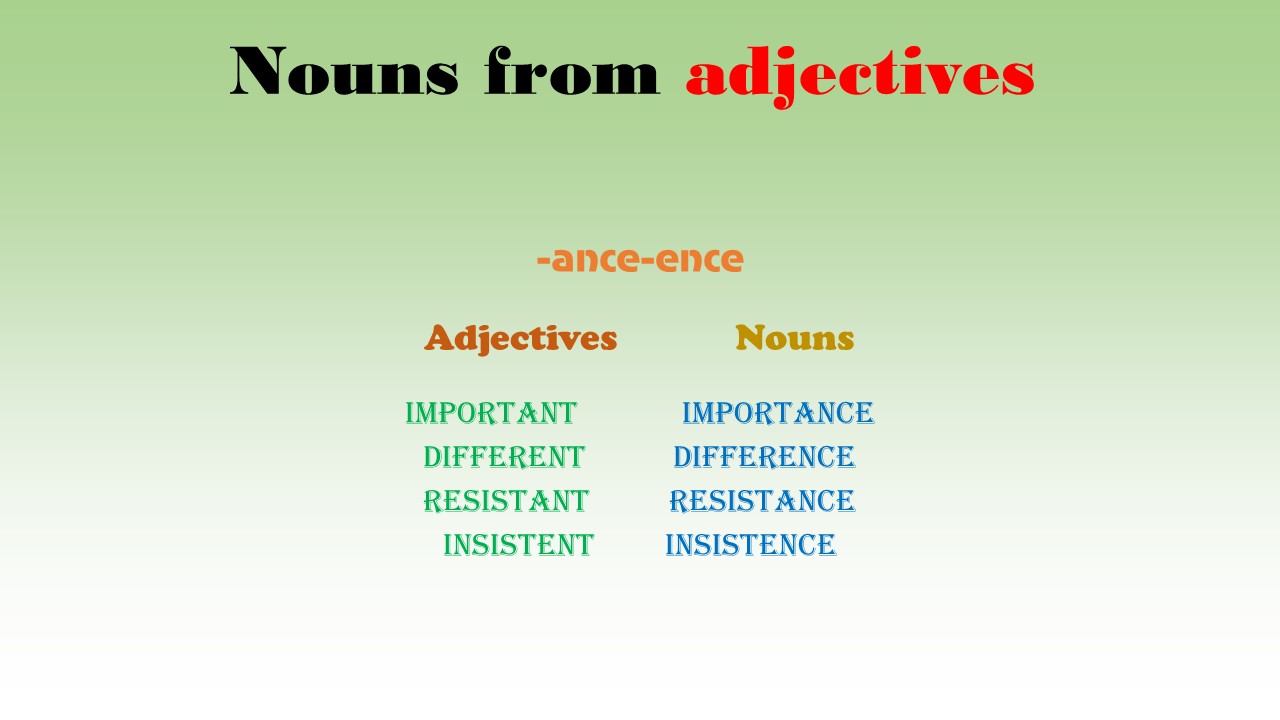
Nouns from adjectives /suffixes:ness-dom/
Nouns from adjectives /suffixes:ness-dom/
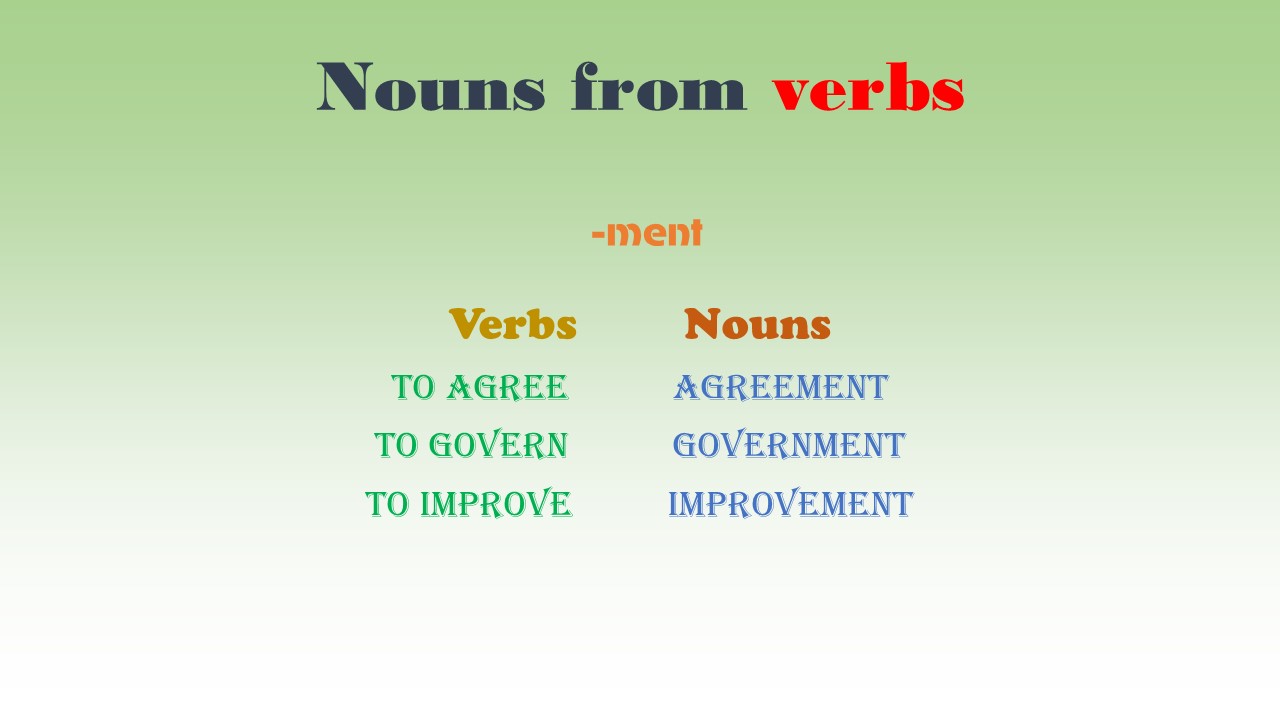
Nouns from verbs/suffix: ment/
Nouns from verbs/suffix: ment/
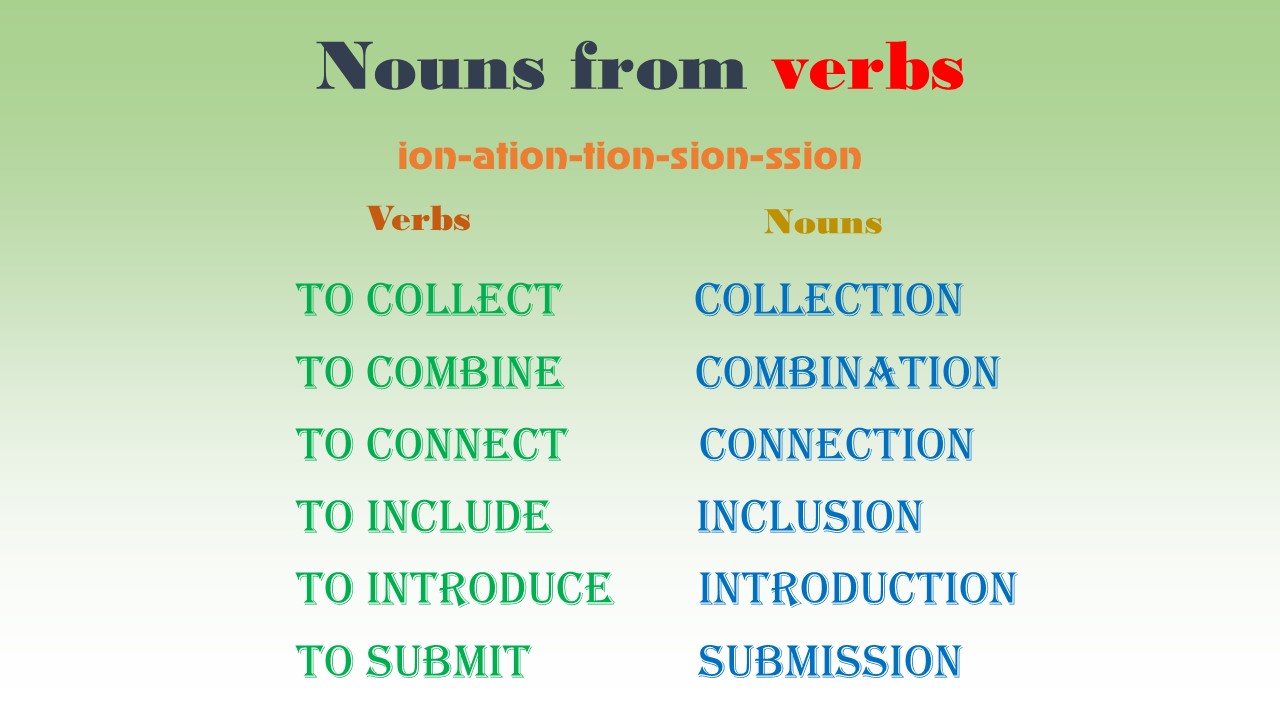
Nouns from verbs /suffixes:ion-ation-tion-sion-ssion/
Nouns from verbs /suffixes:ion-ation-tion-sion-ssion/
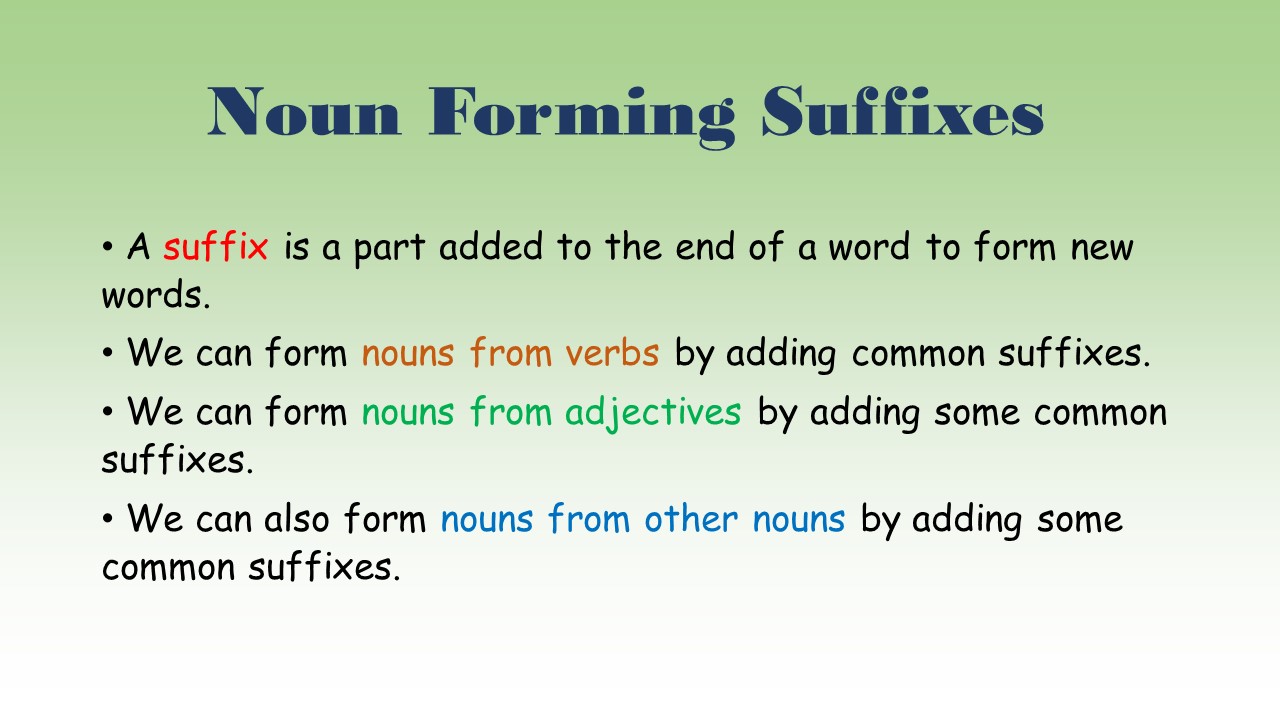
Noun forming suffixes
Noun forming suffixes
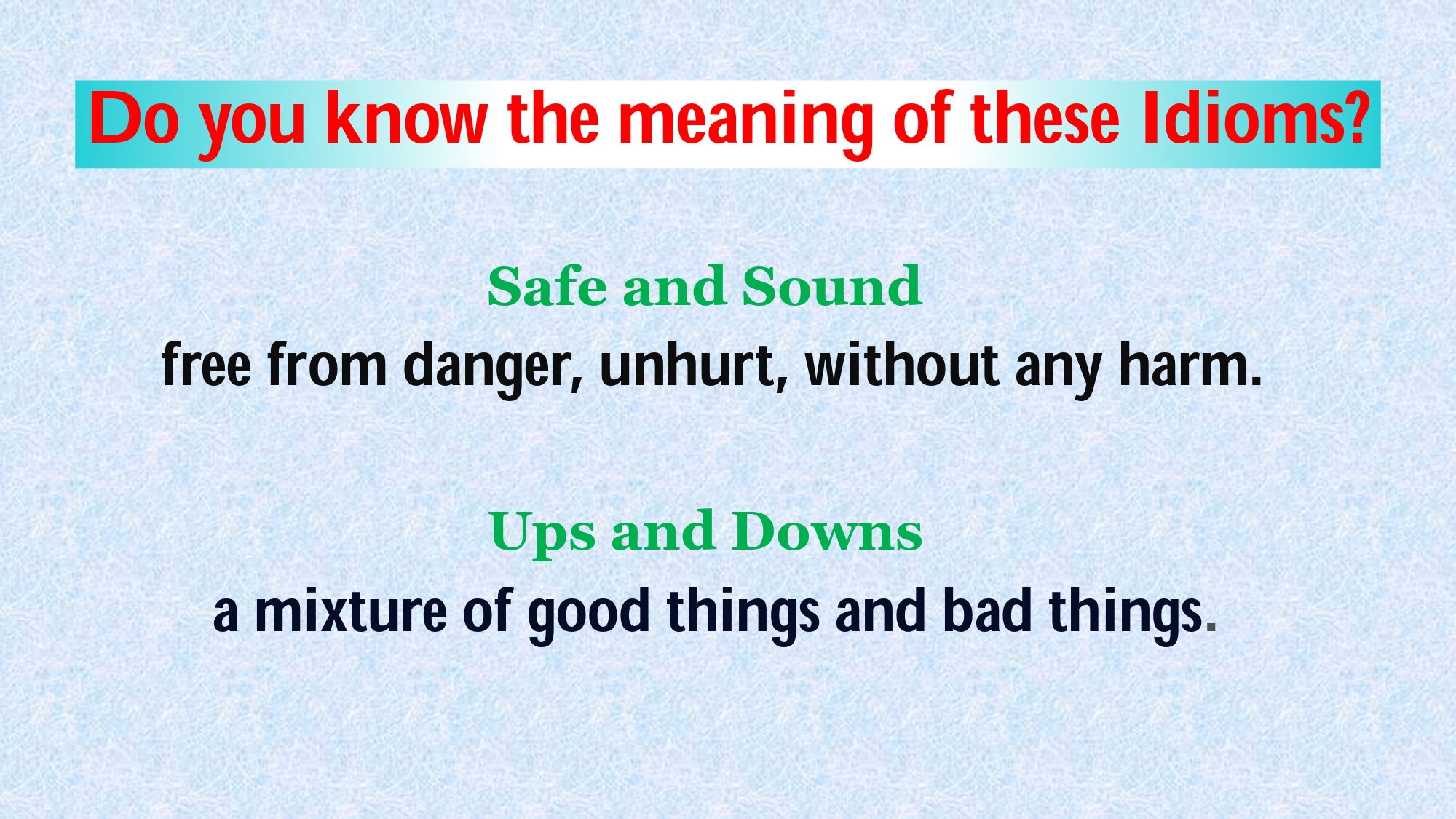
Paired Idioms: Safe and Sound; Ups and Downs
Paired Idioms: Safe and Sound; Ups and Downs
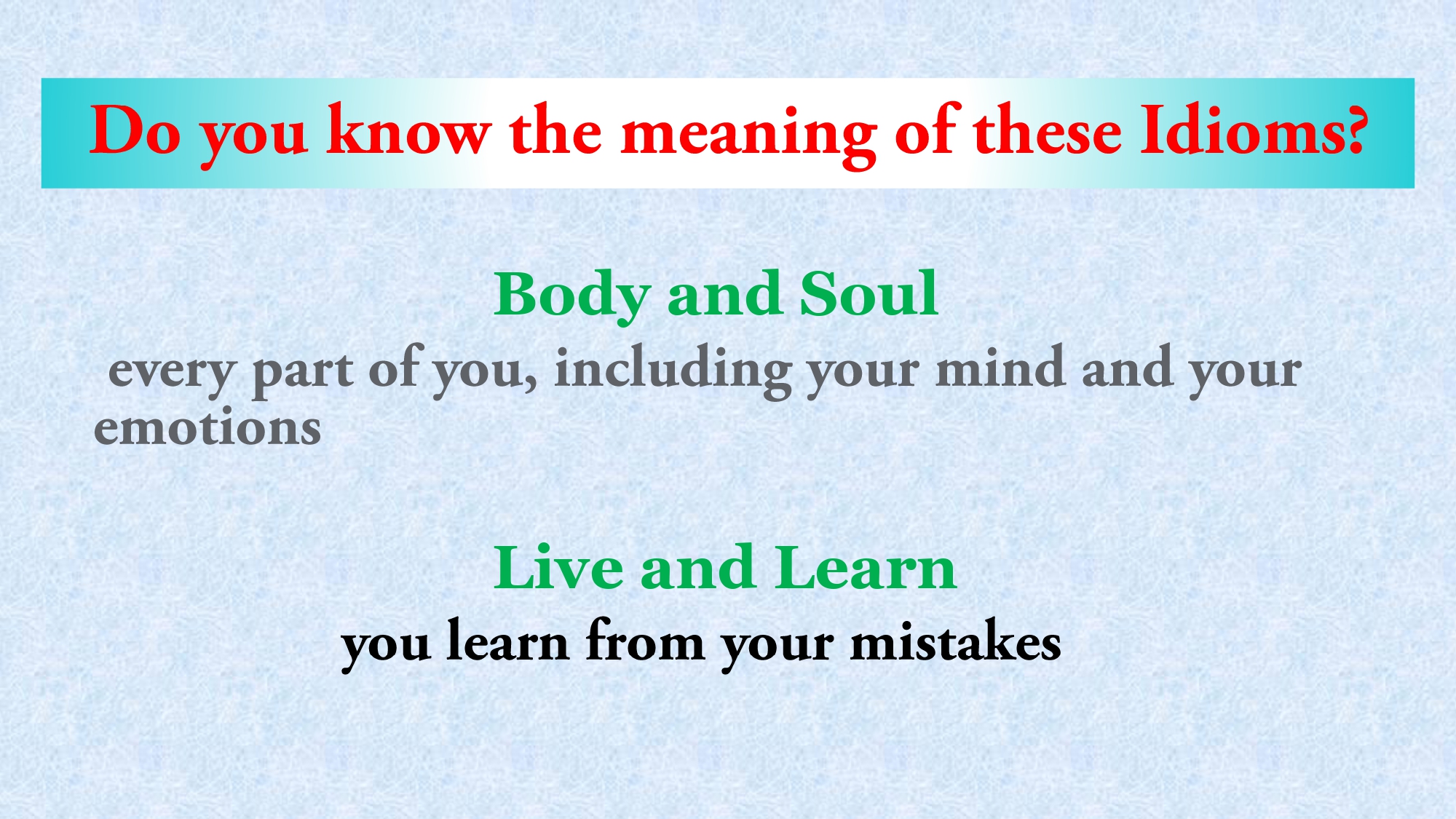
Paired Idioms: Body and Soul; Live and Learn
Paired Idioms: Body and Soul; Live and Learn

Adverb Exercises
Adverbs are versatile words that modify verbs, adjectives, or other adverbs, providing more information about how, when, where, or to what extent an action is performed. Adverbs can appear in various positions within a sentence, depending on the emphasis or context. They often come before or after the verb they modify, but they can also be found at the beginning or end of a sentence.